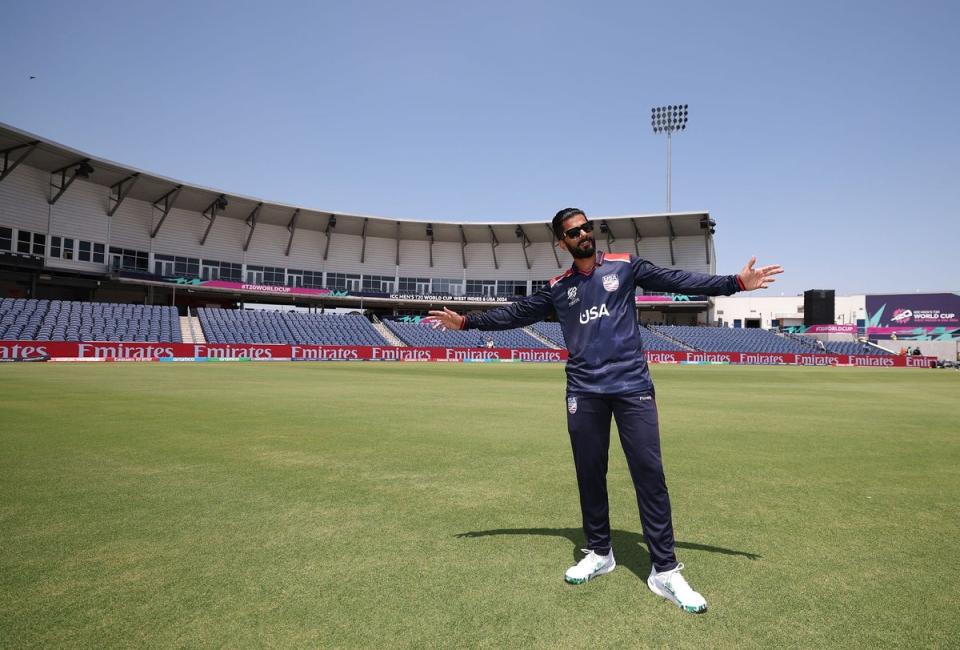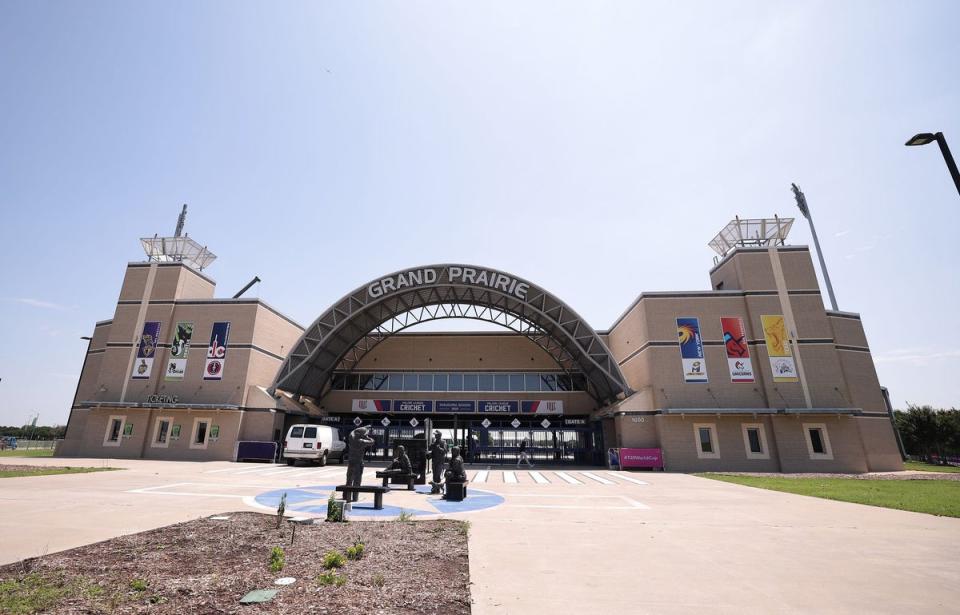Can T20 World Cup finally make cricket a hit in the USA?

When, on a 2020 visit to India, the then US president Donald Trump stood before a crowd of 100,000 at the Narendra Modi Stadium and butchered the name of the nation’s favourite cricketing son, the impression was not exactly of an America primed for invasion by leather and willow.
Little more than four years on from the “Soo-chin Tendul-kerr” blip, however, and as both Modi and Trump seek populist re-election, cricket is on the Stateside campaign trail, trying to woo its way into what can be a most insular sporting culture, just at the moment that the US, in turn, is establishing a growing and increasingly significant presence on the global cricketing scene.
Over the next month, cricket will settle into its sturdiest foothold in the US since the outbreak of the Civil War in 1861, an event that sparked the decline of what had been the country’s 19th century bat-and-ball sport of choice, until baseball soared past.
For the first time in history, the US is hosting a major international tournament, sharing the men’s T20 World Cup with the Caribbean and staging 16 matches in all across temporary venues in Florida and New York, as well as the converted baseball ground Grand Prairie, Texas, that has become the sport’s de-facto American home.
The opener on Saturday night (1.30am on Sunday UK time) will see the US meet Canada in a repeat of the first international cricket match, played back in 1844, while India’s meeting with Pakistan in New York is the standout showpiece of the opening group stage.
It is no coincidence that that game in particular — which has scarcity value since the rival nations do not meet outside major tournaments — has been picked for such plumb billing.
Cricket chiefs know their most effective route into the US market, initially at least, will not come by converting American baseball, ice hockey or NFL fans but instead via the huge diaspora hailing from traditionally cricket-loving nations.
Five million people in America have links to cricket-mad countries like India
More than five million people living in the States were either born in or have ancestry in Bangladesh, India, Sri Lanka or Pakistan. Likewise, the success and profitability of Major League Cricket (MLC), America’s T20 franchise competition, will depend not only on selling out stadiums but also on the value of its TV rights deal in India.
“There’s no shying away from the fact that, commercially, India is the centre of the cricket world,” said Justin Geale, MLC’s director.
The International Olympic Committee (IOC) knows just as much: cricket will be added to the programme at Los Angeles 2028, a bid by the cash-strapped body to broaden its appeal. But while the World Cup, and indeed the Olympics, will be gone and move on in a matter of weeks, MLC is America’s attempt to secure a permanent place in the cricketing calendar.
Currently made up of six teams — four of which share owners with Indian Premier League franchises — but with plans to expand to 10, the league’s second season will start on July 5, just one week after the World Cup final in Barbados.
“We are a big enough country to support 10 teams, so that’s our plan,” MLC chief executive Vijay Srinivasan said this week.
“We had 19 games in our first season, will have 25 in our second. We want to get to 34 next year, and keep expanding.”
Last week, MLC was handed further validity by the International Cricket Council when, after just one season, its matches were awarded full “List-A” status, meaning runs, wickets and landmarks will have statistical equivalence to those in other major competitions like the IPL, Australia’s Big Bash or England’s Hundred and Vitality Blast.
English cricket is particularly concerned about the growth of MLC, which — unlike the majority of franchise tournaments around the world — falls directly within the home summer.

Last year Jason Roy, a World Cup winner in 2019, ripped up his central contract with the England and Wales Cricket Board to take up a lucrative stint with the Los Angeles Knight Riders. Roy, 33, was on his way out of the international picture (though he would have gone to last autumn’s 50-over World Cup if fit) but there are fears younger top players could soon be making similar calls.
English cricket, though, also has plenty to gain from growing interest in the US. The ECB is sounding out American investors as part of its sell-off of the Hundred teams, keen that not too many franchises — and thus too much control of the tournament — fall into one group of IPL hands.
And what of the US itself — the national team made up largely of naturalised players from other nations, about to play at a World Cup for the very first time?
A 2-1 series win over Test-playing Bangladesh this month suggests they, like the relationship between cricket and their country at large, are on an upwards curve.
